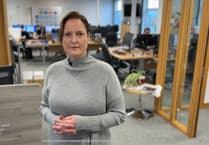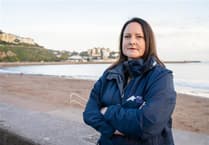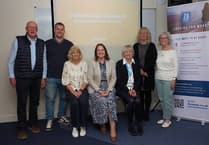‘LIES, damn lies and statistics’ is a well-worn phrase, the origins of which are much disputed, but it is regularly used to undermine the use of facts to justify a point of view.
In my opinion decisions (in the political arena as much as any other) should be based on the facts of any given situation rather than prejudice, which I have previously defined as ‘judgement without reason’.
I came across some interesting facts recently which I share in the interest of openness and transparency. They can all be checked, along with many others, on the Devon County Council web pages.
Last year (2021) 27 people lost their lives on the roads of Devon. As I write, at least three have been killed last weekend alone on west country roads, and another fatal accident is tragically reported in Teignmouth this week. Also in 2021 303 serious accidents were recorded by the police and 1,375 slight accidents, a ‘grand total’ of 1,674.
Teignbridge had the second worst record of local authority areas in Devon, with two fatalities, 69 serious and 216 slight accidents. I should say at this point these figures were by and large significantly down on many previous years due I assume to lockdown keeping people safer on the roads by making them stay at home.
Every cloud etc… Of these accidents 60 per cent involved males: (the most at-risk age group being 20-24) 67 per cent happened within 9 miles of home and according to the police records 77 per cent were due to ‘human error’.
Human error is not defined but includes various acts of misjudgement, certainly including speed. Behind each and every accident there is much pain and worry for the victims, friends and family.
Recently, four towns in Devon, including Ashburton, have agreed to a 20mph speed limit on their roads, a proposal gathering force across the country as numerous communities, following local consultation, support lower speeds on their roads.
When the consultation was held in Newton Abbot earlier this year the decision, for better or worse, went against the proposed reduction. The result was a narrow one, rather like the EU referendum, but nevertheless local residents did not support a speed reduction on all local roads.
At the time I had a conversation with a resident who had passionately held views.
He wanted evidence of the need, claiming that fatal accidents didn’t happen in Newton Abbot, which is surely hardly the point. The facts clearly show that they happen locally and across Devon. However, residents views were respected and no blanket 20 mph came about.
Teignbridge Council has significantly increased its public consultation processes; it values and considers the opinions of residents. It is important to consider the reasons behind suggestions that come forward for consultation.
What are the pluses and minuses, and are they in the best interests of the majority?
Work is ongoing with the production of a revised Local Plan, the “bible” of local planning. (a requirement of central government) Some consultation has occurred and more will happen, after a special council meeting is held on 15th December. Everyone will have a chance to comment on the detail.
I listened into some of the recent Conservative Party Leaders debates. A member of the audience asked what the contestants were going to do for him and his family, ‘because that’s how we vote’. One of the reasons the country is in such an appalling mess right now, is that too many people are of that mind. Far too many vote for self-interest rather than the greater good of all.
As an elected councillor you have a responsibility to all residents, not just those who vote for you (how would you know?) nor just those who live in your ward. Consequently, Teignbridge councillors should take a broad view of the consequences of decisions across Teignbridge, just as Devon County Councillors should take a pan Devon view.
If we as a community are to progress, in whatever field therefore, I believe most strongly that we all need to widen our vision and try and conceive of a better situation for all residents and not just self-interest. There was considerable opposition, back along, to the pedestrianisation of Bank Street, but ask yourself would anyone now go back to traffic in Bank Street?
I very much doubt it. I am not saying that all proposals should be accepted nor that they will all prove to be successful, but some most certainly have been and will be.
Constructive opposition is one thing, and welcomed, but negativity for negativities sake is quite another. Without a vision for better, we all stagnate in the existing and nothing ever improves. There was a time when we sent little children up chimneys…





Comments
This article has no comments yet. Be the first to leave a comment.